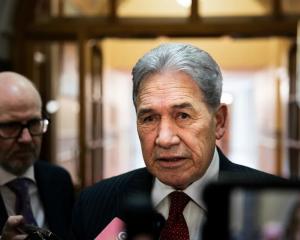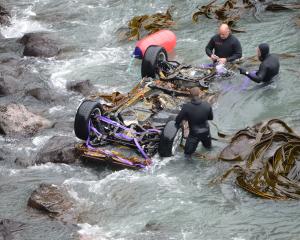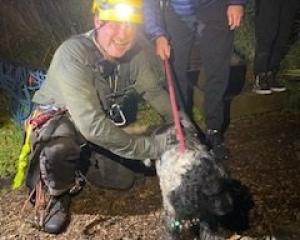
A tourist who arrived in New Zealand yesterday is being deported after officials found she had no clear plans to self-isolate amid escalating coronavirus fears.
The woman checked in to Rucksacker backpackers hostel in Christchurch last night wearing a face mask.
She did not show any flu symptoms nor had she mixed with other hostel residents, it's understood.
The hostel manager, who asked not to be named, said the woman, who was apparently travelling on her own for a fortnight trip and had a pre-existing booking, was checked in to a private room.
But this morning, Ministry of Health officials arrived at the hostel to question the woman about her self-isolation plans, before police officers showed up to take her away.
"She was a little bit stressed out but she wasn't creating a scene or anything," the hostel manager told the New Zealand Herald.

"I got told that she was being taken to be put on a plane."
The manager was told by officials that the woman's self-isolation plans were not thorough enough for her to stay in the country.
The manager did not know what country she had arrived from or where she was being sent to.
"I don't think she would have contaminated anybody but I guess it's just a precaution," she said.
"It was a very eventful morning. It's a quiet wee hostel, we don't really get things like this happening. [The other guests] were fine, they were just curious as to what was going on. No-one was panicky or anything."
Director-General of Health Dr Ashley Bloomfield confirmed the plan to deport the woman at his daily press conference - and said spot checks on other travellers would start from today.
"There was a traveller who came in yesterday ... who was unwilling to commit to self-isolating for the two-week period, and said her intention was to continue with her travels," he said.
"That person has been found and still appears to be unwilling. So the intention is therefore to deport that person."
Bloomfield said the case was unique so far.
"There has been the odd person who has come through and perhaps expressed the view they weren't going to self-isolate, and they've been spoken to and convinced that it is the right thing to do.
"We are also starting, from today, the spot checks on people who are self-isolating, just to help reassure us and other New Zealanders that people are doing the right thing."
Bloomfield said he had some sympathy for travellers whose plans to see Aotearoa were upended, but the restrictions were vital.
"I can understand why someone who might have planned a trip for a long time - two weeks to New Zealand - might be disappointed to arrive and find, right at the 11th hour, that they can't travel around the country.
"However, we are not the only country that is putting these expectations in place, and there is a very good reason to do so - and that is to protect the health and wellbeing of New Zealanders."
Police have also been approached for comment.
The hostel manager said guests are being asked to wash their hands and be mindful of others. Information has been made available to them.
The Government announced at the weekend that all travellers – except those from most Pacific Islands – now have to self-isolate for two weeks on arrival in New Zealand.
Prime Minister Jacinda Ardern has warned of a "zero tolerance" towards any travellers who ignore self-isolation rules, saying they could be deported or fined.













